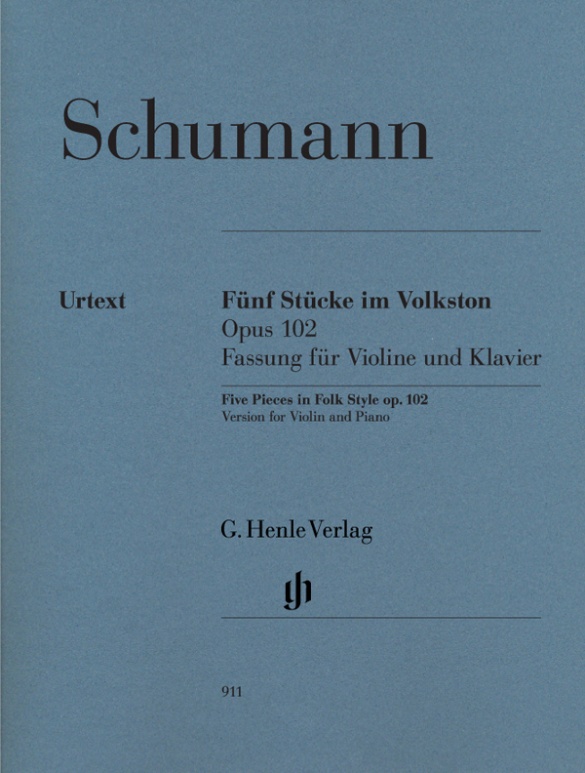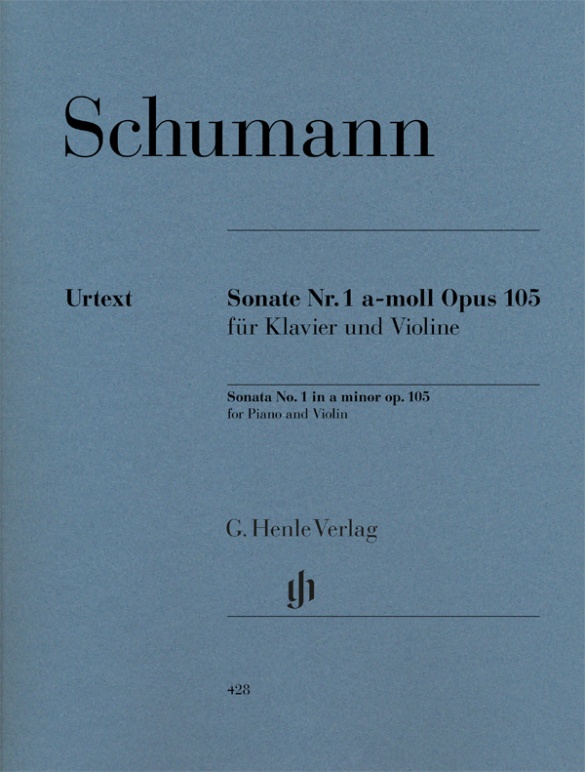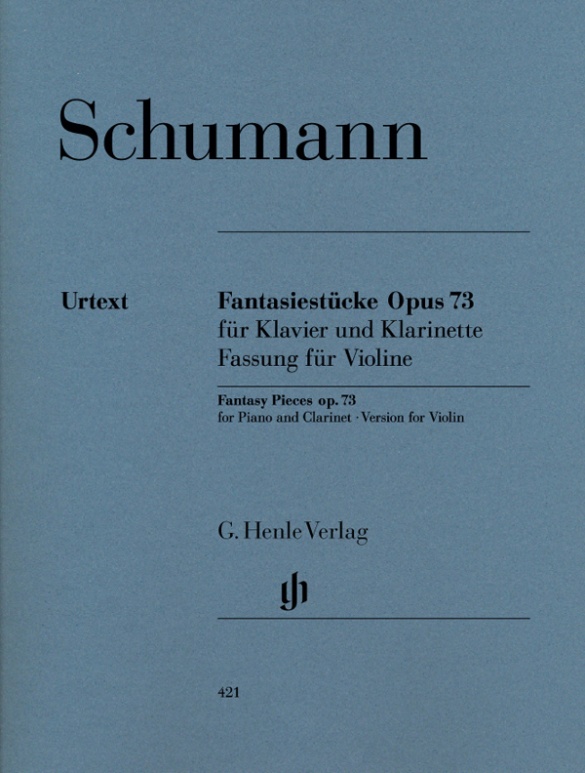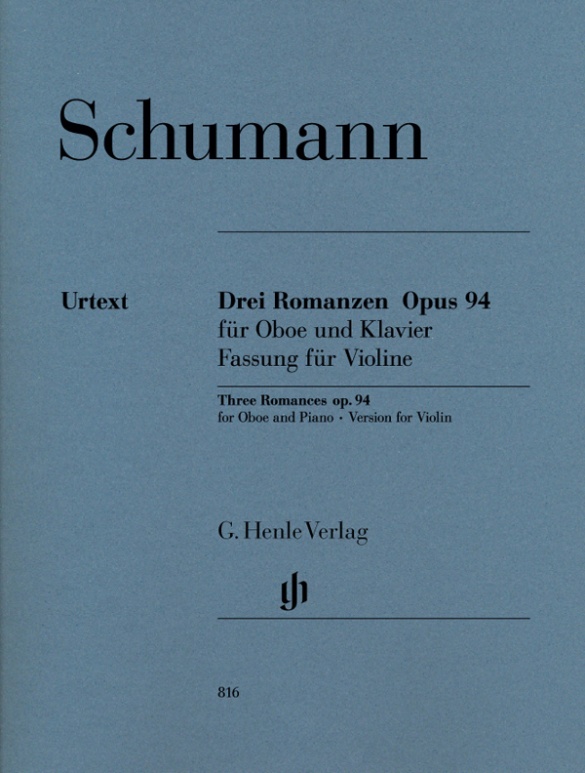

Robert Schumann
Trois Romances op. 94 pour hautbois et piano
En 1849, Schumann fit cadeau d’œuvres de musique de chambre à trois instruments à vent: la clarinette avec les «Trois pièces de fantaisie» op. 73, le cor avec l’«Adagio et Allegro» op. 70 ainsi que le hautbois avec les fameuses «Trois romances» op. 94 présentées ici. Cependant, ces dernières furent commercialisées de son temps également accompagnées de parties de solistes pour clarinette et pour violon. Les clarinettistes se réjouiront certainement que les éditions Henle aient repris à leur compte cette idée d’instrumentation alternative. Offert par Robert à sa femme Clara en 1849 en guise de cadeau de Noël, le manuscrit n’a pas été conservé. Par contre, des esquisses manuscrites ont pu être utilisées pour la préparation de cette édition urtext et permettent de corriger certaines erreurs de la première édition de 1851.
CONTENU/DÉTAILS
(Explanation)
CONCERNANT LE COMPOSITEUR
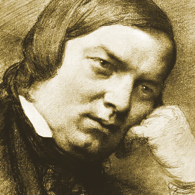
Robert Schumann
Son œuvre est marquée par le concept de la musique poétique qu’il a lui-même forgé et qui tend à une fusion de la littérature et de la musique. Ses pièces lyriques pour piano composées jusqu’en 1839 en sont tout particulièrement exemplaires. Il s’est ensuite consacré à d’autres genres (lied, symphonie et musique de chambre entre autres).
| 1810 | Né à Zwickau le 8 juin, fils d’un libraire. |
| à partir de 1828 | Études de droit à Leipzig, cours de piano auprès de Friedrich Wieck. Se décide pour une carrière de musicien. |
| 1830–39 | Compose exclusivement des œuvres pour piano, surtout des cycles, entre autres: «Papillons» op. 2 (1829-32), «Carnaval» op. 9 (1834/35), «Davidsbündlertänze» op. 6 (1837), «Scènes d’enfants» op. 15 (1837/38), «Kreisleriania» op. 16 (1838), «Novelettes» op. 21 (1838). |
| 1832 | Une paralysie partielle de la main droite rend impossible une carrière de pianiste. 1833 Fondation de la confrérie imaginaire du «Davidsbund». |
| 1835–44 | Dirige la Neue Zeitschrift für Musik (Nouveau Journal pour la Musique). |
| 1840 | Mariage avec Clara Wieck; 138 lieder parmi lesquels le Liederkreis op. 39 sur des poèmes d’Eichendorff, le cycle de lieder «Dichterliebe» op. 48. |
| 1841 | 1re Symphonie en Si bémol majeur («Symphonie du Printemps») op. 38 et 4e Symphonie en Ré mineur op. 120. |
| 1842 | 3e Quatuor à cordes op. 41; autres œuvres de musique de chambre. |
| 1843 | Professeur de composition au conservatoire de Leipzig. Oratorio «Le Paradis et la Péri» op. 50. |
| 1845 | Il s’installe à Dresde. Voyage en Russie. |
| 1845 | Concerto pour piano en La Mineur op. 54, 2e Symphonie en Ut majeur op. 61. |
| 1850 | Directeur général de la musique à Düsseldorf. Création à Leipzig de l’opéra «Genoveva» op. 81. Symphonie en Mi bémol majeur («Rhénane») op. 97; concerto pour violoncelle en La mineur op. 129. |
| 1854 | Naissance d’une amitié avec Brahms. Achèvement des Scènes de Faust. Concerto pour violon en Ré mineur pour Joseph Joachim. |
| 1854 | Tentative de suicide et hospitalisation à la clinique psychiatrique d’Endenich. |
| 1856 | Meurt le 29 juillet à Endenich près de Bonn. |
About the Authors
Georg Meerwein (Editeur)
Prof. Georg Meerwein, born 1932 in Bickensohl am Kaiserstuhl, first studied Protestant church music at the Badische Musikhochschule in Karlsruhe, but then changed over to orchestral music with oboe as his main subject at the Staatliche Hochschule für Musik in Freiburg.
Meerwein performed as a soloist all over the world for several decades and was also a visiting professor at universities in Europe and Latin America, including at the Universidade Federal da Bahia Brazil from 1958 to 1961. Between 1989 and 2009 he gave master-classes in many South American countries. From 1962 to 1996 he was solo oboist and cor anglais player with the Bamberg Symphony Orchestra. As well as numerous radio and television appearances, Meerwein has, amongst other things, also made a recording of Mozart’s Piano Quintet K. 452 with Ingrid Haebler for Philips. He died on 25 December 2016.
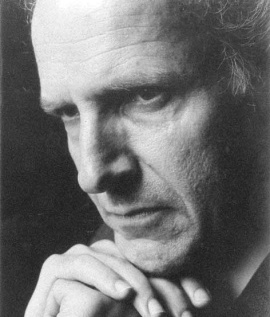
Klaus Börner (Doigtés piano)
Prof. Klaus Börner, born in 1929 in Senftenberg/Niederlausitz, studied the piano at the School of Music in Weimar (1949 Privatmusiklehrerexamen) and at the Conservatoire de Lausanne (1952 Examen de virtuosité). Piano masterclasses with Alfred Cortot, Edwin Fischer and Wilhelm Kempff rounded off his musical education.
In 1956 he won 1st prize in the International Piano Competition in Barcelona and in 1959 was chosen to be part of the “Bundesauswahl junger Künstler des Deutschen Musikrates”. He taught the piano and teaching methodology at the Robert Schumann Conservatory in Düsseldorf and from 1969–1997 was Professor of Piano, Piano Pedagogy, and the Structure of Music in the Music Faculty at Johannes Gutenberg University in Mainz. He published the “Handbuch der Klavierliteratur zu vier Händen” (Atlantis Musikbuch-Verlag, Zürich). Klaus Börner died in Neuss on 20 November 2018.
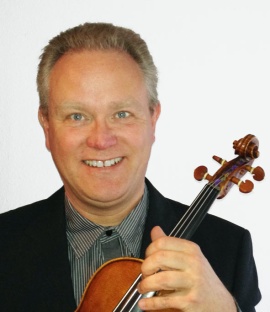
Ernst Schliephake (Doigtés violon)
Ernst Schliephake was born in 1962. At the age of seven he was already a state prize-winner in the category violin at the young people’s music competition “Jugend musiziert”; the following year he achieved the same result with the clarinet. He was taught by Klaus Speicher and Heinz Hepp (violin and clarinet) and studied the violin in 1979 with Prof. Lukas David in Detmold, working as his assistant between 1983 and 1985. Aside from playing the violin in Tibor Varga’s chamber orchestra, he also played many chamber concerts with him, predominantly as a clarinettist. A master-class with Ruggiero Ricci 1981, led to an intensive collaboration and friendship.
Since 1986 he has been a violinist with the Düsseldorf Symphony Orchestra, the Bavarian Radio Symphony Orchestra and the Bavarian State Opera, and since 1989 has been the associate concertmaster with the Munich Symphony Orchestra.
Informations sur la sécurité du produit

G. Henle Verlag
Vous trouverez ici des informations sur le fabricant du produit.G. Henle Verlag e.K.
Forstenrieder Allee 122
81476 München
Allemagne
info@henle.de
www.henle.com
recommandations
autogenerated_cross_selling
Autres éditions de ce titre
Autres éditions de ce titre


